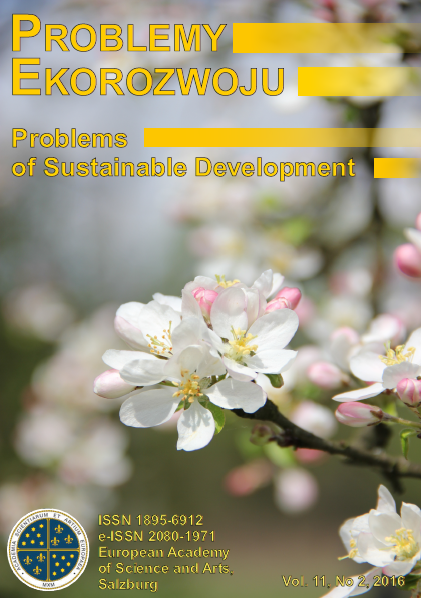1611 King James Bible (KJV), Cambridge Edition, Cambridge, circa 1900.
ATTALI J., 2003, Żydzi, świat, pieniądze, Cyklady, Warszawa.
Babylonian Talmud, Tractate Taanith http://www.halakhah.com/pdf/moed/Taanith.pdf (03.01.2016).
BAKKEN P. W., ENGEL J.G., ENGEL J.R., 1995, Ecology, Justice and Christian Faith. A Critical Guide to the Literature, Greenwood Press, Westport.
BARTHOLOMEW I OF CONSTANTINOPOLE, 2013, Patriarch Bartholomew’s Message to 19th Session of the Conference of the Parties https://zenit.org/articles/patriarch-bartholomew-s-message-to-19th-session-of-the-conference-of-the-parties/ (29.03.2016).
BENEDICT XVI, 2011, Address to the Bundestag, Berlin, http://w2.vatican.va/content/benedict-xvi/en/speeches/2011/september/documents /hf_ben-xvi_spe_20110922_reichstag-berlin.htm (29.03.2016).
BENEDICT XVI, 2009, Homily at the Vespers July 24 in the Cathedral of Aosta, in: L'Osservatore Romano, https://w2.vatican.va/content/benedict-xvi/en/homilies/2009/documents/hf_ben-xvi_hom_20090724_vespri-aosta.html (10.11.2015).
BILDSTEIN G. J., 2005, Tikkun olam, in: Tikkun Olam. Social Responsibility in Jewish Thought and Law, eds. Shatz D., Vaxman C.I., Diament N.J., Rowman & Littlefield, Oxford p. 17-60.
COBB J.B., 1995, Is it too late? A Theology of Ecology, Environmental Ethics Books, DeLeon Springs, Florida.
EASWARAN E., 2005, Words to Live By. Short Reading of Daily Wisdom, Nilgiri Press, Tomales, California.
FAMIELEC J., 2014, W poszukiwaniu ładu gospodarki zrównoważonej in: Studia i Materiały. Miscellanea Oeconomicae 18, 1, p. 89-101, based on: Hauff V., Unsere gemeinsame Zukunft – Der Brundtland – Bericht der Weltkomission für Umwelt und Entwicklung, Greven 1987.
FRANCIS, 2015, Laudato Si', Vatican.
GAL-ED E., 2005, Księga świąt żydowskich, Cyklady, Warszawa.
GOTTLIEB R.S., 2006a, A Greener Faith: Religious Environmentalism and Our Planet’s Future, Oxford University Press, Inc., New York.
GOTTLIEB R.S., 2006b, The Oxford Handbook of Religion and Ecology, Oxford University Press, Inc. New York.
HARRIS J.M., WISE T.A., GALLAGHER K. P., GOODWIN N. R., 2001, A Survey on Sustainable Development. Social and Economic Dimensions Frontier Issues in Economic Thought, Neva R. Goodwin, Series Editor, Island Press.
ISAAC M. D., 2005, Centennial Rumination on Max Weber's The Protestant Ethics and the Spirit of Capitalism, Universal Publishers, Boca Raton, Florida.
IUNC/UNEP/WWF, 1991, Caring for the Earth. A Strategy for Sustainable Living, Gland, Switzerland.
JOHN PAUL II, 1979, Redemptor Hominis, Vatican.
KIETLIŃSKI K., 2006, Religijne determinanty działalności gospodarczej w perspektywie czterech wielkich religii: judaizmu, buddyzmu, chrześcijaństwa i islamu, in: Nierówności społeczne a wzrost gospodarczy, 8 (1), p. 43-59.
MADDISON A., 2001, The World Economy. A Millennial Perspective, OECD Publications, Paris.
MADDISON A., 2007, Contours of the World Economy, 1-2030 AD: Essays on Macroeconomic History, Oxford University Press, Oxford, New York.
MELLO A., 2002 Judaizm, WAM, Kraków.
MINTZER I.M., 1992, Confronting Climate Change: Risks, Implications and Responses, Cambridge, Cambridge University Press.
NAJDA A.J., 2008, Ekologiczne samookreślenie Jezusa w Ewangelii św. Jana, in: Studia Ecologicae et Bioethicae, 6, p. 93-104.
OMOBOWALE E.B., SINGER P.A., DAAR A.S., 2009, The three main monotheistic religions and GMO food technology: an overview of perspectives, in: BMC International Health and Human Rights, http://www.biomedcentral.com/content/pdf/1472-698X-9-18.pdf (17.12.2015).
PAPUZIŃSKI A., 2013, Aksjologia zrównoważonego rozwoju: próba typologizacji, in: Problemy Ekorozwoju/ Problems of Sustainable Development, vol. 8, no. 1, p. 5-25.
PAUL VI, 1965, Gaudium et Spes, Vatican.
RANDERS J., 2012, A Global Forecast for the Next Forty Years – 2052, Chelsea Green Publishing, VT, USA.
RATZINGER J., 1994, Wprowadzenie w chrześcijaństwo, ZNAK, Kraków.
ROGALL H., 2010, Ekonomia zrównoważonego rozwoju, Zysk i S-ka, Poznań.
ROTHBARD M.N., 1976, New Light on the Prehistory of the Austrian School, in: Library of Economics and Liberty, http://www.econlib.org /library/NPDBooks/Dolan/dlnFMA4.html (03.02.2016).
SEDLÁČEK T., 2011, Economics of Good and Evil, Oxford University Press Inc., New York.
SHAPIN S., 1988, Understanding the Merton Thesis, in: Isis, vol. 79, No. 4, p. 594-605, https://dash.harvard.edu/bitstream/handle/1/3403054/Shapin_Understanding_Merton.pdf?sequence=2 (20.01.2016).
SINTADO C.A., Social Economy, Ecojustice and the New Testament, in: Liberty Readings, Ethics Theses 6, Geneva, Switzerland, http://www.globethics.net/documents/4289936/13403260/GE_theses_6_web_final.pdf/14d56ec0-39dc-4b9c-8f97-6d87276f6bd8 (10.10.2015) .
SOMBART W., 2001, The Jews and Modern Capitalism, Batoche Books, Kitchener.
SPYCHAJ M., 2016, Makabryczny przepis, in: Silva Rerum, Muzeum Pałacu Króla Jana III Sobieskiego w Wilanowie, http://www.wilanow-palac.pl/makabryczny_przepis.html (17.01.2016).
WAGNER-TSUKAMOTO S., 2013, Ethical Principles of Old Testament Economics: Implications for the Teaching of Business Ethics, Working Paper, ULSM Leicester, University of Leicester, https://lra.le.ac.uk/bitstream/2381/27 667/2/LRA-Teaching_business_ethics_FINA L.pdf (11.11.2015).
WEBER M., 2011, Etyka protestancka a duch kapitalizmu, Aletheia, Warszawa.
WHITE L. 1967, The Historical Roots of our Ecological Crisis, in: Science vol. 155, p. 1203-1207.
WWF, 2014, Living Planet Report, http://www.footprintnetwork.org/images/article_uploads/LPR2014_summary_low_res.pdf (10.09.2015).
ZDANOWSKA M., 2012, Zmierzch epoki ekologii? in: ZNAK no. 681, http://www.miesiecznik.znak.com.pl/6812011marzena-zdanowska-zmierzch-epoki-ekologii/ (10.02.2016).



